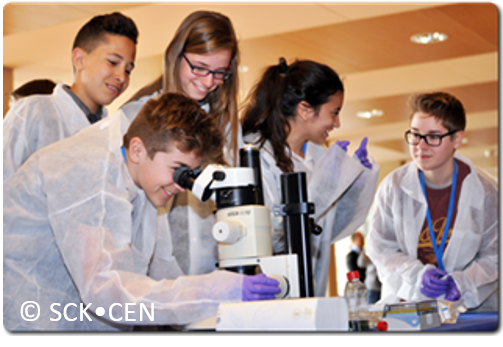Oxidative stability of omega-3 long chain poly-unsaturated fatty acids in vegetable purees enriched with microalgae

Category
Ph D Defense
Date
2019-06-13 17:00
Venue
KU Leuven Campus Kortrijk, C611 - Aula, 00.611 - Etienne Sabbelaan 53
8500 Kortrijk, België
8500 Kortrijk, België
Promovendus/a: Lore Gheysen
Promotor(en): Prof. dr. ir. Imogen Foubert, Prof. dr. Luc De Cooman
Omega-3 long chain poly-unsaturated fatty acids (n-3 LC-PUFA) are getting more and more attention since their health benefits in the areas of brain development and in the prevention of cardiovascular disorders have been proven. Fish is the most well-known source of n-3 LC-PUFA, although it is under pressure due to a reducing stock and the accumulation of toxic compounds (PCB’s, dioxins, lead,…). Microalgae, the primary producers of n-3 LC-PUFA, have already shown their potential as an alternative, sustainable, and even vegetarian and vegan, source. Limited research has however been performed on food products enriched with n-3 LC-PUFA rich microalgae.The aim of this PhD was to investigate in-depth the potential of microalgae as an alternative source of n-3 LC-PUFA in vegetable-based products. These products are essential in a healthy diet as they contain high value compounds like fibers and antioxidant. The focus was especially, on the impact of dosage form, microalgal species and type of vegetable puree on the n-3 LC-PUFA and endogenous antioxidant concentration and on the oxidative stability of the enriched vegetable purees.
This research uncovered some essential insights concerning the oxidative stability of vegetable purees enriched with microalgae. Taken all the obtained results together, it can be concluded that especially photoautotrophic microalgal biomass is the appropriate source in order to create an n-3 LC-PUFA enriched vegetable puree with a high oxidative stability. Vegetable purees enriched with photoautotrophic microalgal biomass were oxidatively stable, irrespective of the type of vegetable puree and the microalgal species. Carotenoids derived from the vegetable purees helped to improve the oxidative stability but alone they were still insufficient as the vegetable purees enriched with heterotrophic microalgae or fish oil were prone to oxidation.
All Dates
- 2019-06-13 17:00
Powered by iCagenda





